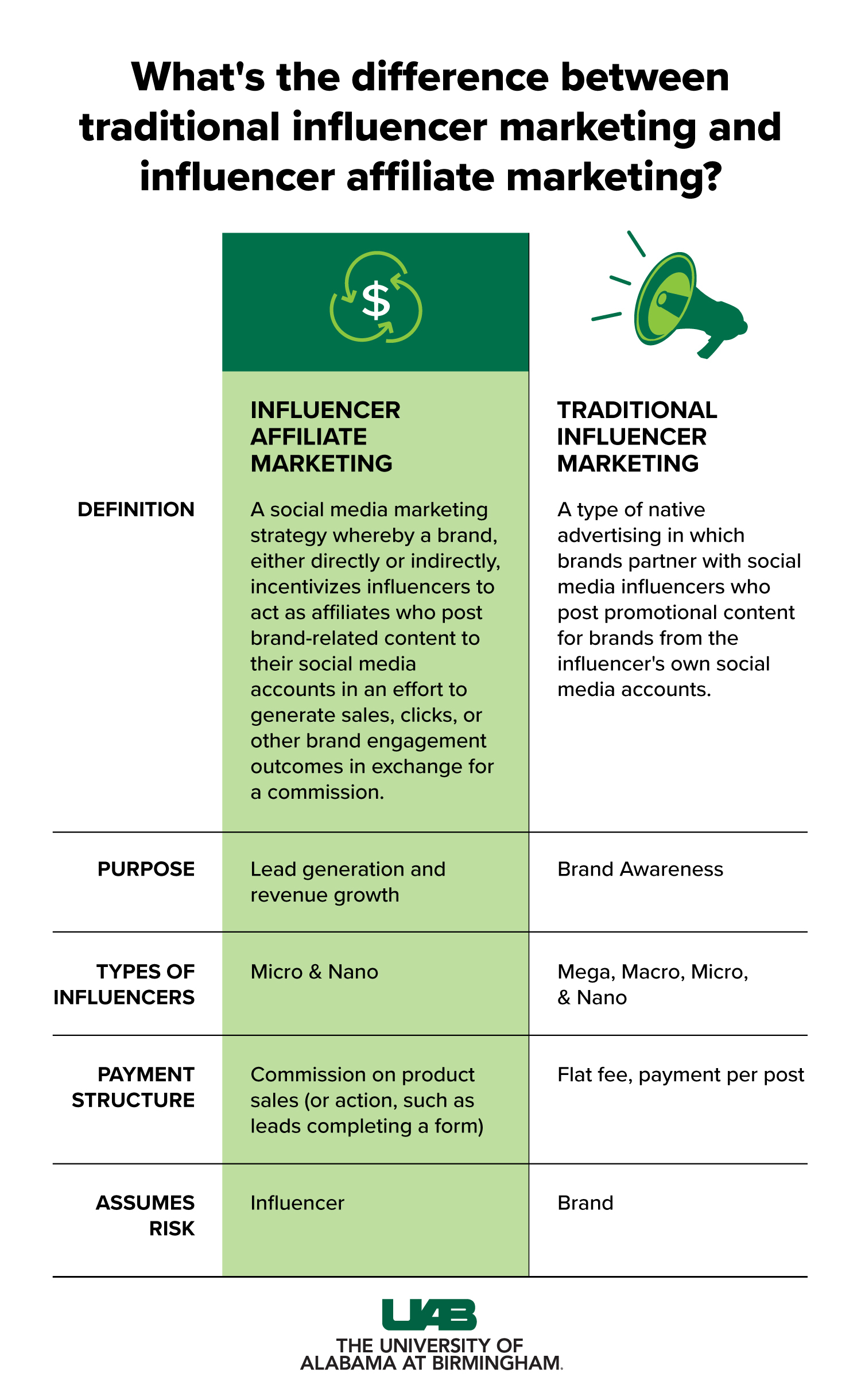UAB research reveals that certain language styles within influencers' posts can increase or decrease engagement with their content.
 Dr. Parker Woodroof
Dr. Parker Woodroof
Photography: Lexi Kuhn A new study from the Collat School of Business at the University of Alabama at Birmingham examines the impact of language on engagement with influencer affiliate marketing posts on social media.
The common thread in the study, published in the Journal of Business Research, is that big brands have traditionally adopted affiliate marketing programs. However, the factors that influence engagement with influencer-generated content remain largely unknown. To fill this gap, the research team applied an elaboration likelihood model to investigate how the linguistic features of influencers' affiliate marketing posts influence consumer behavior. A large data set of influencer affiliate marketing posts from Instagram was analyzed using text mining and natural language processing techniques.
The study revealed that certain language styles within these posts can either increase or decrease engagement with the content. Certain factors such as word count and analytical thinking have a negative impact on engagement, while factors such as influence, credibility, and positive emotions have a positive impact. These findings not only advance our understanding of influencer affiliate marketing and social media engagement, but also provide important insights for both brands and influencers participating in affiliate marketing campaigns.
“Affiliate influencer marketing is a great example of a social media marketing strategy that is evolving in real time before our eyes,” said the study's lead author, Associate Professor of Marketing Parker Woodroof, Ph.D. “Various phenomena that barely existed five years ago are now mainstream overnight. Companies have to think about what to do. This is what has happened with influencer marketing in general. And now, as the industry matures and addresses new concerns about artificial intelligence, bots, and fake followers, we see that brands are still looking for ways to leverage influencer marketing's value.”
The research conducted by Woodroof and his team provides valuable insight into the dynamics of influencer affiliate marketing. As the industry continues to move toward micro-influencers who deliver cost-effective, targeted campaigns, it's important for brands to understand their audience's interactions with influencers in this category. . Micro-influencers can establish trust with their followers and provide authentic brand endorsements, making them an essential part of your brand strategy. By leveraging affiliate programs, brands can reduce risk and collaborate effectively with micro-influencers.
 “Affiliate influencers offer businesses a lower-risk strategy of partnering with influencers using a commission-based compensation scheme rather than an upfront investment,” Woodroof said. “Especially for smaller brands, leveraging affiliate marketing could be a winning strategy going forward.”
“Affiliate influencers offer businesses a lower-risk strategy of partnering with influencers using a commission-based compensation scheme rather than an upfront investment,” Woodroof said. “Especially for smaller brands, leveraging affiliate marketing could be a winning strategy going forward.”
This study is the first to investigate the influence of linguistic cues on consumer engagement with affiliate marketing content created by influencers, and represents a significant contribution to the field. The unique nature of influencer affiliate marketing, which lies at the intersection of social media marketing and traditional affiliate marketing, warrants thorough investigation of its impact on marketing outcomes. The findings extend the existing body of research on social media engagement behavior and provide important insights for marketers to effectively leverage language to drive engagement.
As social media usage continues to increase, with consumers spending an average of approximately 2.5 hours per day on these platforms and affiliate spending reaching billions of dollars, influencer affiliate marketing is becoming more prevalent in the social media e-commerce landscape. has emerged as a possible strategy. This study is an important contribution to understanding the dynamics of influencer affiliate marketing and its potential impact on marketing strategies.
Other contributors to this study include Dr. Holly A. Syrdal and William C. McDowell of Texas State University. Dr. Susan Myers of the University of Central Arkansas; Dr. Sandipan Sen of Southeast Missouri State University;


